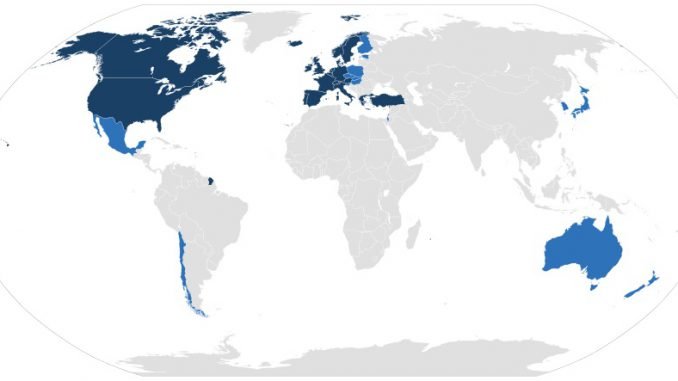
According to Frantz, Lithuania has done a good job improving its legal system and the transparency standards and management of state-owned enterprises, but it still has to carry through its forestry and road maintenance enterprise reforms to complete the OECD accession process.
“I think I can say with real confidence that Lithuania is making good progress. It cleared several key hurdles and our expectation is that if things continue at the current pace that Lithuania will be ready to join the OECD at some point in 2018,” the deputy secretary general told BNS.
BNS: The government proposed reforms in forestry district and road maintenance enterprises. Do you think that reforms of these state-owned enterprises are enough for Lithuania to be able to join the OECD or we need to work on some other enterprises?
Frantz: I think these are the two most obvious candidates where it is clear that Lithuania needs to make progress and when this progress is made, it will again send exactly the right signal to the OECD. (…) For instance, 42 forestry districts are, frankly, too many to operate with any efficiency. Now, the OECD does not mandate that you go from 42 to one. That’s really not our job, but what we do ask and what is important is that the Lithuanian government, involving stakeholders all across society, come up with an evaluation that decides on what is the most efficient number for forestry districts. (…) it seems clear to me that a much smaller number than 42 would be necessary to address both the need for better governance and the need for efficiency.
Let me throw in another area where I think Lithuania is demonstrating progress in terms of consolidation for efficiency and effectiveness and that is in the education field. The minister for education and science is taking forward a very ambitions thoughtful and much needed program for reform which focuses not simply on the number on higher education institutions but also on the larger vision of exactly what fits Lithuania’s needs. I think that the recent action that the minister has taken is certainly going in the right direction
BNS: What tasks in the membership process need immediate attention by Lithuania?
Frantz: Let me mention a couple of specifics. You saw that last week the lobbying law was withdrawn after it had been tabled in parliament and was withdrawn because it was determined that the lobbying law as written didn’t meet all the standards for transparency and accountability that the OECD requires. Rather than wait until after it was passed and try to change the law that was passed, the smart decision was made by the coordinating council there to re-draw the law so that the new law bring Lithuania’s lobbying requirements closer to the best practices of the OECD.
There’s another area where we feel Lithuania needs to make progress. That is on preferential treatment of investments by EU countries. (…) What the OECD requires is that that preferential treatment be expanded basically to cover all OECD countries. (…) I don’t think that we see that as a major hurdle. (…) I see that as one of the easy things for Lithuania to do.
BNS: How will Lithuania benefit from OECD membership?
Frantz: OECD membership is a clear recognition to the international community that a country observes the highest global standards. That it shares a commitment to a pluralist democracy. That it adheres to open and transparent market economy principles and to a common goal of sustainable development. That sends a message to the outside world. It also sends a strong signal to international and domestic investors that a country’s policies follow the key standards in areas such as corporate governance, investment, competition, financial markets and public administration. This is a big ‘open for business’ sign that Lithuania will hang on its door when it goes to court foreign direct investors, when tries to persuade domestic investors that their money is better off staying at home.
BNS: Thank you for the interview.
———————————–
Lithuania in late 2012 officially confirmed its intention to join the OECD, but the formal accession process did not start until mid-2015. The country lags behind its EU members in the process: Poland joined the organization in 1996, followed by Estonia in 2010 and Latvia in 2016.

Be the first to comment